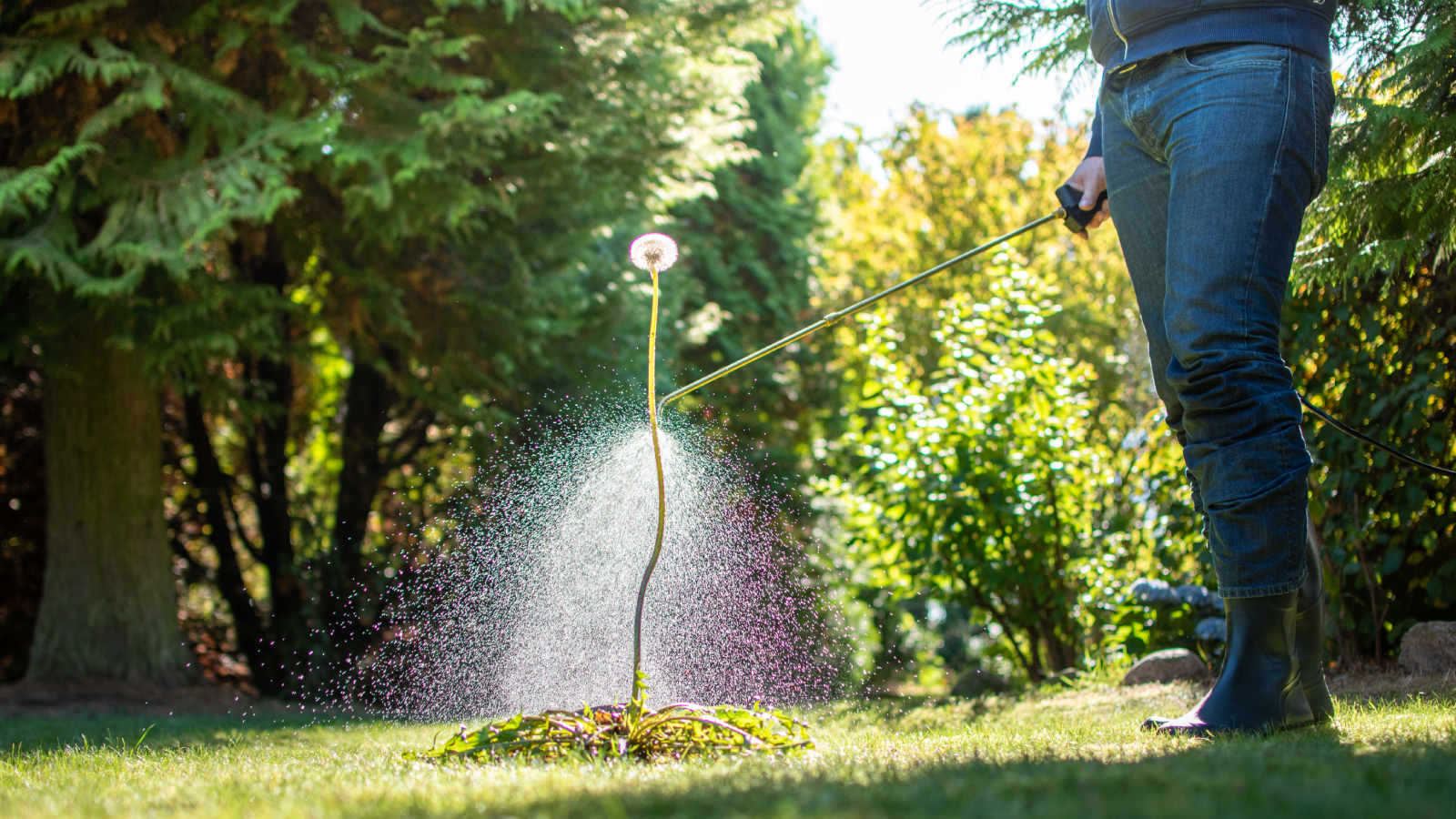Most Effective Roundup Alternatives For A Safe & Weed-Free Garden
There are safer ways to kill weeds. We suggest you ditch the Roundup and try some earth-friendlier options.

Caroline Bloomfield

Sign up for the Gardening Know How newsletter today and receive a free copy of our e-book "How to Grow Delicious Tomatoes".
You are now subscribed
Your newsletter sign-up was successful
The safety of using chemical weed control has come under great scrutiny, and the findings are not good. Most inorganic chemicals are not safe and have a negative effect on the environment and the ecosystems they touch. That's why many gardeners are looking for Roundup alternatives.
The use of Roundup and its harmful effects on people has been at the forefront of discussions. In January of 2024, the USRTK.org wrote: "A pooled study of three case-control studies published in March 2023 in Leukemia and Lymphoma journal found a statistically significant increased risk and confirmed an association between Non-Hodgkin Lymphoma (NHL), including sub type hairy cell leukemia, and exposure to certain herbicides including glyphosate."
Are there safer alternatives to Roundup for weeds in the garden? There definitely are. Read on for more information.
Why You Should Use Roundup Alternatives
Roundup and other herbicides containing the compound glyphosate are effective system herbicides that kill many types of annual and perennial weeds but the damage they cause is not worth the convenience.
Studies indicate that glyphosate is harmful to the environment and to aquatic life when it reaches streams and waterways.
Others studies claim the herbicide may be linked to infertility, immune problems, autism, Alzheimer’s disease, low testosterone levels, certain types of cancer, and other serious health conditions. It's hardly worth taking a chance. In 2023,
Weed control without these harmful chemicals can certainly be difficult. Even pulling and hoeing are less than successful against weeds that spread via underground runners, or those with long taproots.
Sign up for the Gardening Know How newsletter today and receive a free copy of our e-book "How to Grow Delicious Tomatoes".
There are a alternatives to Roundup in the lawn and garden that can knock a dent in your weed control battle.
How to Kill Weeds Without Glyphosate
It may be more of a challenge to eliminate those pesky weeds without the use of chemicals, but the peace of mind it brings is worth the extra trouble. So, if you’re stuck wondering what to use instead of Roundup, here are a few ideas that may help:
Flamethrowers: Although they have long been used in agriculture, flamethrowers, also known as flame weeders, are becoming more widely used by gardeners who are seeking alternatives to Roundup. Flamethrowers are effective against many types of weeds in certain areas, such as in gravel driveways or sidewalk cracks.
Flame weeders should never be used where any fuel is nearby, including dry grass or weeds or flammable mulch. Repeat applications may be needed for large weeds.
Organic weed killers: Gardeners have access to a growing number of organic weed killers containing a combination of ingredients such as clove oil, citrus oil, lemon juice, or vinegar. Manufacturers claim the products are safe for people and pets, and that no safety gear is needed. However, users should read the label carefully before using it.
Vinegar: Typical household vinegar isn’t strong enough to do much good against tough, well-established weeds, but some gardeners swear by horticultural or industrial vinegar, which has an acetic acid content of 20 to 30 percent. Vinegar this powerful isn’t without risks, however. Be sure to wear goggles and protective clothing, as the vinegar can burn the skin and eyes. It can also harm frogs and toads that take refuge in dense shade.
Although regular household vinegar may not pack enough punch to control weeds, adding a little salt may make vinegar more effective, while a few drops of liquid dish soap will help the vinegar stick to the leaves.
Essential oils: Chemical alternatives such as peppermint, citronella, pine, and other essential oils may burn the foliage, but they probably won’t affect the roots. Pet owners should study up on essential oils before trying this weed control solution. Many essential oils are toxic to cats and dogs, and some may be fatal. If you have pets and choose this method of control, keep them put up.
Corn gluten: A byproduct of corn starch processing, corn gluten is a dry powder that is safe for people and the environment. The problem, however, is that while corn gluten may slow development of new weeds, it doesn’t have much impact on weeds that are already established.
Avoiding glysophate and toxic chemicals, and accepting the hard work that may be required for weed removal is one way we can contribute to a healthier planet. The long-term effects of harmful chemicals on the land have yet to be seen but we know they are a health hazard for humans. Be kind to the Earth and resolve to use some healthier methods for controlling weeds.

A Credentialed Garden Writer, Mary H. Dyer was with Gardening Know How in the very beginning, publishing articles as early as 2007.
- Caroline BloomfieldManager of Marketing Communications